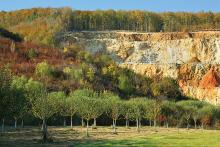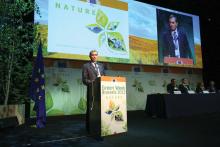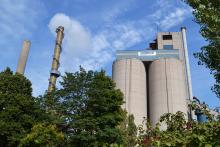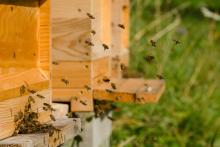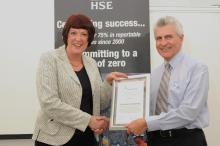Heidelberg Cement selected the Natura 2000 protected File Hajdar on Gotland, Sweden as the location for its first sustainable quarrying summit. The company said it selected the area which is operated by its subsidiary
Heidelberg organised the event last week to tell local stakeholders about progress of a project to investigate the possibilities of establishing and increasing the number of Pulsatilla patens in other suitable areas. The long-term goal is to find a solution for co-existence of quarrying activities and sustainable management of the Pulsatilla patens on Gotland, Sweden.
At the first day of the conference, around 50 participants learned more about new restoration concepts including the sustainable protection of the red listed flower Pulsatilla patens at Gotland. The second day of the conference took participants to the current and former quarrying sites and locations where the Pulsatilla patens is growing.
“We would like to see this conference as a starting point for an overall discussion on how nature and industry can exist side-by-side on Gotland,” said Cementa environmental manager Kerstin Nyberg. “We hope that the conference is the beginning of good cooperation, involving all local stakeholders in order to protect and develop the values we have here.”

